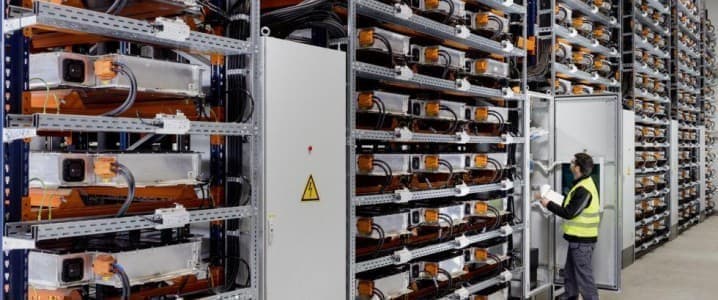With the energy transition in full swing, experts have predicted that metals are poised to become even more valuable than oil, with prices for copper, nickel, cobalt, and lithium set to reach historical peaks for an unprecedented, sustained period in a net-zero emissions scenario, with the total value of production rising more than four-fold by 2040. That’s the case because clean energy technologies require more metals than their fossil fuel-based counterparts.
Unfortunately, there’s a chink in the armor of that quartet of ‘super metals’ that is powering the energy transition: cobalt.
Lithium-ion batteries contain a variety of elements, including lithium, nickel, aluminum, iron, manganese, and cobalt. Of these metals, cobalt is the most expensive, with the average cost of the blue metal surpassing the cost of all the other battery metals put together over the past four years. EV batteries can hold up to 20 kg of Cobalt in each 100 kilowatt-hour (kWh) pack, with cobalt making up to 20% of the weight of the cathode in lithium-ion EV batteries.
And that’s bad news because cobalt is considered the highest material supply chain risk for electric vehicles in both the short and medium term. Further, cobalt is produced as a by-product of copper or nickel mining, and is, therefore, affected by the demand and pricing of those metals. Indeed, cobalt prices have rocketed 105% since the beginning of 2021, to trade at $65,800 per metric ton.
More worryingly, beyond its price, cobalt mining comes with a huge human cost, too: about 60% comes from the Democratic Republic of the Congo, where mining has been linked to child labor and deaths.
Scarcity, price, and human rights concerns have made the elimination of cobalt from EV batteries critical to the EV transition.
“For mass electrification to happen, there are lots of sentiments that cobalt needs to be eliminated or reduced to the bare minimum,” Chibueze Amanchukwu, professor of molecular engineering at the University of Chicago, has told CNBC.
Thankfully, the industry has recognized the risks of cobalt dependency, and many battery manufacturers and end users have established ambitious goals to move to low- or no Co-containing cathodes.
Cobalt-Free Batteries
And none other than EV icon Tesla Inc. (NASDAQ:TSLA) is leading the charge here.
In its third-quarter investor presentation, Tesla revealed that it’s switching battery chemistry for all standard-range Models 3 and Y from nickel cobalt aluminum (NCA) chemistry to an alternative, older technology that uses a lithium iron phosphate (LFP) chemistry.
LFP cells not only have much longer useful lifetimes but are also cheaper than NCA or nickel manganese cobalt (NMC) cells. The biggest trade-off is that LFP batteries have a lower energy density. However, LFP batteries are still able to compensate for this shortcoming by dramatically cutting on thermal runaway in the event of a crash, meaning an LFP battery pack requires much less volume on cooling and structural protection to keep the cells separated.
Many electric buses in China already use LFP batteries. Last year, Tesla introduced LFP batteries in its standard range Model 3s in China and dropped the starting price from 309,900 yuan ($48,080) to 249,900 yuan ($38,773). CEO Elon Musk has revealed that the improving energy density of LFP batteries now makes it possible to use the cheaper, cobalt-free batteries in its lower-end vehicles so as to free up more battery supply of lithium-ion chemistry cells for Tesla’s other models.
Up to now, intellectual property restrictions have kept LFP cells mostly within China. But Tesla will now be able to deploy them in its pivotal U.S. market after it won approval from the Chinese government to start using LFP batteries in Chinese-made BEVs in 2020. Indeed, Tesla is making the switch to LFP mandatory in all its markets after a positive reception in the U.S.
Last December, Bloomberg NEF, a clean energy research outfit that has been, among other things, tracking battery costs, announced that battery costs had dipped below the $100 per kWh threshold for the first time ever. The crucial milestone was achieved for battery packs designed for electric buses in China.
In the EV industry, the $100 per kWh battery cost price point is generally regarded as the Holy Grail critical for the wider adoption of electric vehicles by making them cost-competitive at the sticker price, which remains an important psychological barrier for many potential buyers. The powertrain typically accounts for more than 70% of the cost of an EV. Tesla’s LFP switch not only means fatter margins but can fast track the company in the race to $100 per kWh leading to longer growth runways.
The United States government is also spearheading efforts to move away from cobalt.
The supply chain of LFP batteries is dominated by Chinese companies like BYD and Contemporary Amperex Technology Limited, or CATL. However, in an effort to lower dependence on foreign countries, the U.S. Department of Energy released a national blueprint in June that calls for, among other things, eliminating cobalt from lithium batteries by 2030. Two U.S.-based start-ups, Sparkz and Texpower, say that they can help, though the companies have yet to prove out their technologies in electric vehicles.
By Alex Kimani for Oilprice.com
More Top Reads From Oilprice.com:
- Guyana To Become The 11th Country To Produce Over 1 Million Bpd
- The Electric Vehicle Charging Market Could Be Worth As Much As $1.6 Trillion
- Nightmare November For Oil As Prices Plunge Again


















